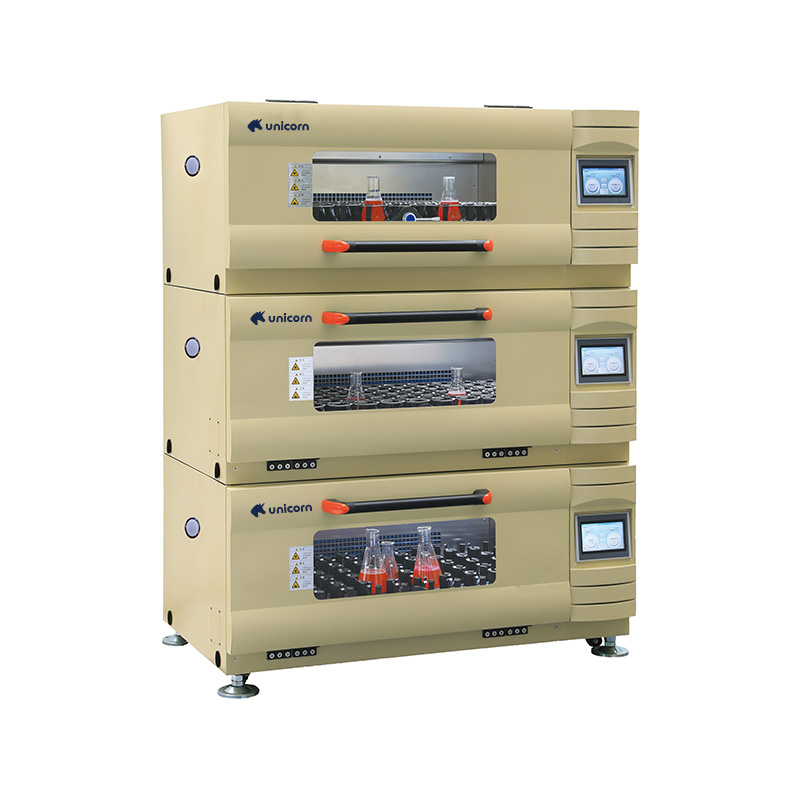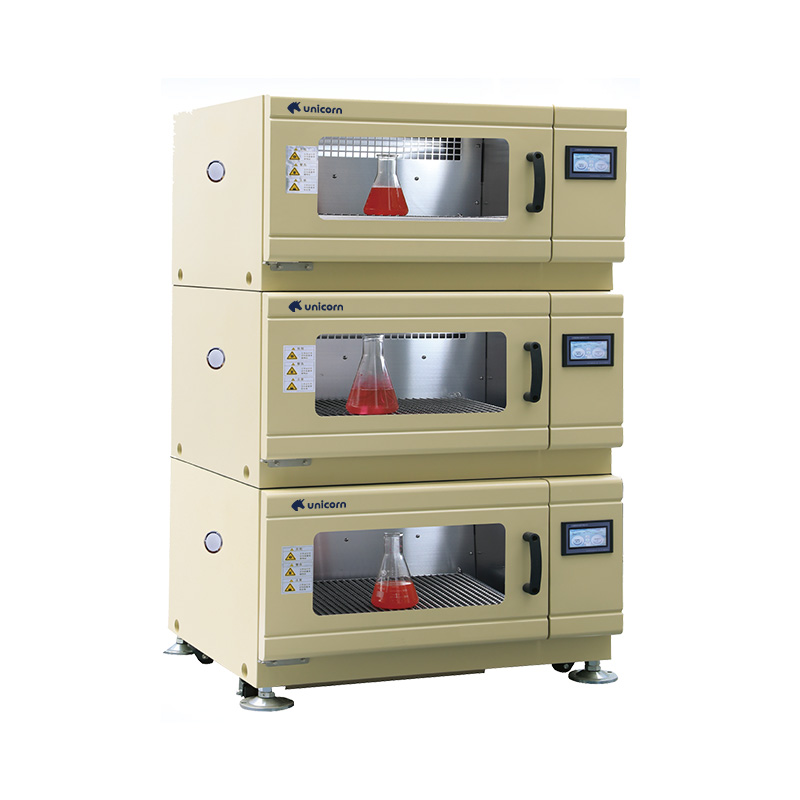Culturing stem cells in shaker incubators
Culturing stem cells in a dynamic environment offers superior, scalable growth compared to static cultures. Two viable agitation options exist: utilizing a suitable incubation shaker or employing an incubator equipped with a specialized benchtop shaker designed to operate within a CO2 atmosphere. To successfully nurture stem cells in suspension or on microcarriers, the shaker or incubator must ensure gentle mixing, precise CO2 control, and maintain an active and hygienic humidity level. Additionally, stringent sterility measures are paramount.
Consistent Homogeneity for Reproducible Results
Achieving reliable and reproducible results in stem cell cultures hinges on sustaining optimal conditions throughout the entire bioprocess. Specialized incubation shakers, optimized for stem cell cultures, empower operators with precise control over CO2 regulation and humidity. Unwavering temperature uniformity is a fundamental requirement. Employing a gentle drive system guarantees that even shear-sensitive cell suspensions receive ample oxygen for thriving.
Maintaining a Hygienic Environment for Stem Cells
The detrimental consequences of contamination in stem cell experiments are well-known—consuming both time and resources. Stem cell shakers are equipped with features designed to minimize contamination risks. Ideally, shakers include additional hygienic elements such as antimicrobial coatings and UV radiation. When selecting an incubation shaker, easy and thorough cleaning and an effective means of collecting overflow liquids are also key considerations.
Shakers Designed for CO2 Incubators
Stem cells can also be cultivated on a shaker within a CO2 incubator. These benchtop shakers must be purpose-built to withstand the acidic incubator atmosphere, preventing corrosion. The ability to remotely control the shaker and monitor its operating conditions from a distance are significant advantages. It’s crucial that the shaker produces minimal waste heat to ensure uniform temperature distribution, providing the ideal conditions for the cells in the incubator.
Screening for Optimal Media Components
The selection of media components, particularly growth factors, plays a pivotal role in stem cell culture. These components essentially govern stem cell behavior, impacting factors like cell viability, proliferation, and differentiation. In addition to adjusting process parameters, in vitro control of cultured stem cell behavior is possible through media composition modifications. Shakers are frequently employed for optimizing media, as they enable cost-effective, parallel experimentation.
Automation Enhances Efficiency
Modern shaker accessories greatly streamline stem cell culturing, enhancing user-friendliness. Integrating an automated feeding system bolsters biomass yield and productivity without requiring manual process interruptions. Users can create feeding profiles tailored to specific applications. Furthermore, bioprocess software grants operators the ability to remotely monitor and control incubation shaker or incubator operating parameters from anywhere. For instance, it permits the programming of incubation times needed for stem cells to adhere to microcarriers before shaking commences, fostering greater process efficiency.”
Make your shaken stem cell culture a success
The Large Capacity Stackable CO2 Incubator Shaker is a versatile solution for a wide range of cell cultures, from CHO and hybridoma to mammalian and insect cells. Serving as the ideal precursor to fermenter cultures, it boasts exceptional bearing technology, ensuring a stable and impressively quiet startup, even when multiple layers are stacked, eliminating disruptive vibrations. Its innovative air circulation system guarantees precise temperature field uniformity. Additionally, its stackable design accommodates up to 2 or 3 layers, optimizing laboratory space for more efficient use.



